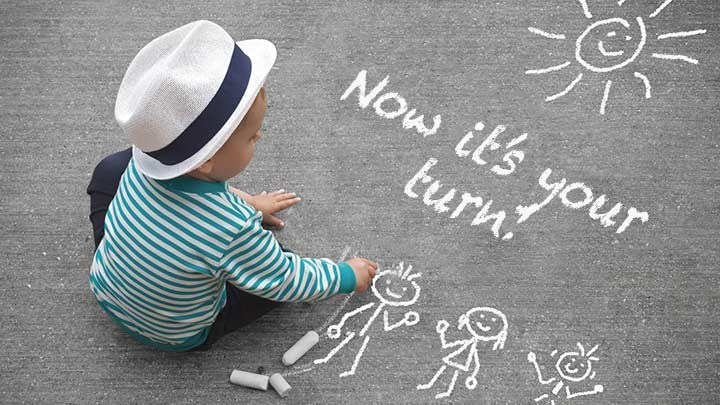Tips in case of impulsiveness
Children with ADHS frequently find it hard to abide by the rules. Although they often understand that rules and agreements are sensible, they are unable to actually implement them. Since they can hardly control their impulses or not at all, they will interfere time and again.
This is frustrating not only for parents and other close contact persons (such as teachers), but it also puts a great strain on the child itself. A few basic tips can help your child to better control its impulsiveness.

Giving clear instructions
Always give clear instructions! Your child can only comply with rules if it knows exactly what is expected of it. Also, it is important to make requests at the right time: When your child is fully absorbed in playing, for example, your requests will likely not be followed. Always express yourself clearly when giving instructions. Make eye contact as well as physical contact. Speak in clear, short sentences and have the child repeat your request.

Establishing rules
Rules bring order to everyday life and provide orientation. It would thus be best to agree, together with the whole family, on a few clear-cut rules. They should be expressed in positive terms and accurately describe the desired behaviour. Write down the rules and then hang them up in a clearly visible place. Important: The rules should, of course, apply equally for all family members.
Examples: We are friendly to one another. We share. We are mindful with one another. We eat supper together at 7 p.m.

Establishing point plans
Despite clear rules, ADHD-children find it frequently difficult to abide by them. Accordingly, praise is especially important to get your child on the right track. In addition to verbal praise or a smile, special reward systems – such as point plans – proved to be successful with ADHD-children. For desirable behaviour or for goals achieved, the child may collect points (or smileys, stamps in a notebook, etc.). These rewards function as "positive boosters" and can promote desirable behaviour.

Suffering consequences
If neither positive reinforcements nor point plans encourage the child to behave appropriately, logical consequences must be suffered.
Examples:
The child knocks over the wastepaper basket.
Logical consequence: The child will sweep the room.
The child constantly quarrels and always provokes its siblings.
Logical consequence: The children are physically separated and may only play together again after a certain period of time.

STOP
Overexcited children find it often difficult to ease up and stop their negative behaviour. In this case, STOP signals proved to be successful.
STOP will signal to the child clearly and unmistakably that it must immediately stop its undesirable behaviour. To do this, stand straight in front of your child, stretch out your arm towards the child and show your open palm. At the same time, say STOP in a loud voice.

Taking a deep breath
Conflicts are unavoidable when living together. It is thus crucial to handle them well. Don't get involved in a dispute or quarrel with your child. If you shout and get loud, your child will do likewise. That's not the way to solve conflicts, however, and both sides will be very unsatisfied coming away from the situation. Important: Learn to take a deep breath, remain calm and objective. When verbal arguments no longer have any effect and a tantrum is looming, it is usually expedient to provide a physical separation for a limited period of time and send the child to its room. At an earlier time already, you should have discussed with your child the use of pulling this emergency brake.

Making it up again
Not every dispute has a (quick) solution – and afterwards, not everything will be fine again immediately! Nonetheless, it is important that you end any conflict clearly and explicitly so that your child will not have the feeling that you are still cross and annoyed. Take it in your arms and say that you love him or her. After one of the typical tantrums, it is generally also sensible not to address the incident again at a later time with your child. Otherwise, there is the risk that your child flips out again. Perhaps you will find better access to him or her again if you use the next-possible opportunity for praise.